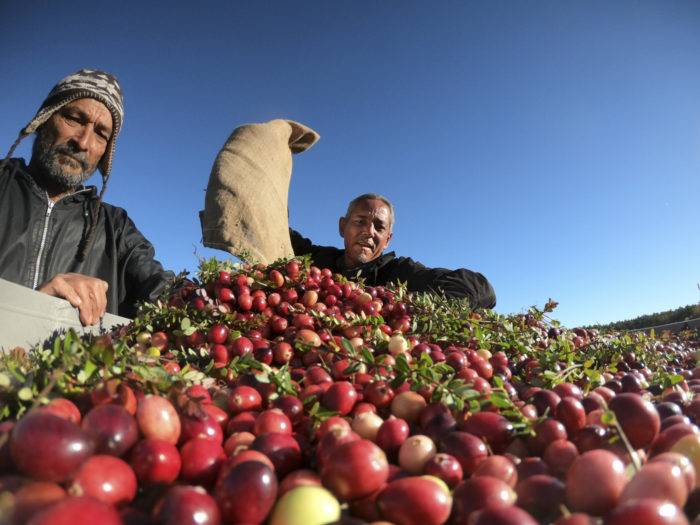

The U.S. Department of Agriculture (USDA)’s Agricultural Marketing Service (AMS) recently announced the availability of $ 360 million to establish at least six new Regional Food Business Centers. This funding comes from the American Recovery Plan Act (ARPA), which provided significant investments to respond to and rebuild from the impacts of the COVID-19 pandemic. Among its provisions, ARPA included funding for strengthening and building more resilience into our nation’s supply chains, with a focus on supporting local and regional producers and markets impacted by the pandemic.
According to the Request for Applications (RFA), the Regional Food Business Centers are envisioned to provide “coordination, technical assistance, and capacity building support to small and mid-sized farm and food businesses, with the goal of creating a more resilient, diverse, and competitive food system.”
Specific goals for the Centers are to:
- Expand and strengthen regional food systems networks and partnerships in response to hardships and vulnerabilities exposed by the COVID-19 pandemic;
- Increase food and farm business and financial acumen, particularly among small and mid-size operators;
- Create more, new, and better markets, and increase market awareness and access for small and mid-size producers and processors;
- Increase the number of local producers that distributors, retailers, and foodservice buyers source from, either directly or through intermediaries;
- Increase the number of new food and farm businesses and improve the viability of existing businesses; and
- Increase the revenue of food and farm businesses served.
What will the Centers do?
The Centers are intended to respond to the identified needs and opportunities of the region they serve through critical coordination, technical assistance, and capacity-building.
Coordination involves outreach to food and farm businesses, with a focus on underserved communities, and engagement with relevant stakeholders in local and regional food system development. The RFA emphasizes the Centers’ responsibility to maintain and cultivate partnerships with a variety of organizations, including those led by and serving historically underserved individuals. Coordination also includes working with stakeholders in the region to apply for and execute successful projects funded by other AMS local and regional food system grant programs.
Technical assistance (TA) involves direct business services for small and mid-sized farms and food businesses and entities impacted by the pandemic that provide value/supply chain coordination.
Each Center is expected to identify its own priorities for technical assistance for the region it serves. The Center itself may provide the technical assistance, or may contract with technical assistance providers. The RFA includes several criteria for technical assistance providers, including that they must be:
- established in the region;
- able to support wide-ranging needs of regional stakeholders including business and market development and value/supply chain coordination;
- experienced in helping smaller-scale food producers and food and farm businesses in the middle of the supply chain identify and navigate third party financial assistance;
- and experienced in food and agriculture business development.
Capacity Building means subawards for businesses in the region impacted by the pandemic and working to expand into new market opportunities. Subawards can support staff time, business planning, equipment purchase, value and supply chain coordination, product development, marketing, and other needs. While subawardees are not required to also be receiving technical assistance from the Center, USDA “encourages” the Centers to make awards noncompetitively to entities that are receiving TA, to advance the business recommendations made by the TA provider.
The Centers are expected to prioritize investments in underserved and Tribal communities. Some examples of how Centers might do this as provided in the RFA are:
- Collaborating in proposal development and consulting with members of communities and organizations led by and serving historically underrepresented and underserved food and farm businesses;
- Gathering data and conducting analyses that help measure and advance equity;
- Addressing barriers to full participation in programming for historically underserved communities; and
- Conducting equitable hiring practices.
How are regions defined?
In the RFA, USDA defines a geographic region as all or part of at least three states or territories, or a 400-mile radius. USDA has identified three high priority regions where they intend to fund Centers, as well as a national Tribal Food Business Center, and is otherwise asking applicants to define regions in their proposals and identify the high need or priority area(s) within the region that they will serve.
The three high priority regions USDA has identified are Colonias (counties on the US/Mexico border); high need areas of the Delta and Southeast; and high need areas of Appalachia.
It is not clear at this stage how many awards USDA will make and what the geographic distribution of the Centers will look like beyond those identified regions and the national Tribal Center. USDA has said they plan to make awards to at least six Centers, but they recognize that the Centers will likely not reach every state and territory. Awards for the Centers will range from $ 15 million to $ 50 million, spread over a five-year cooperative agreement. If USDA receives multiple proposals for overlapping regions, they may work with applicants to coordinate and resubmit.
Who can apply?
Each proposal must include a partnership between at least three eligible entities representing at least two of the eligible entity categories. Eligible entities include:
- producer networks or associations;
- food councils;
- tribal governments;
- state agencies or regional authorities;
- institutions of higher education;
- nonprofits; and
- economic development corporations.
Applications are due November 22, 2022.
USDA is hosting a webinar on September 19, 2022 at 3pm EST to provide additional information and answer questions. You can register here.
For more information and to access the RFA, visit USDA’s Regional Food Business Center.
The post USDA Accepting Proposals for Regional Food Business Centers appeared first on National Sustainable Agriculture Coalition.